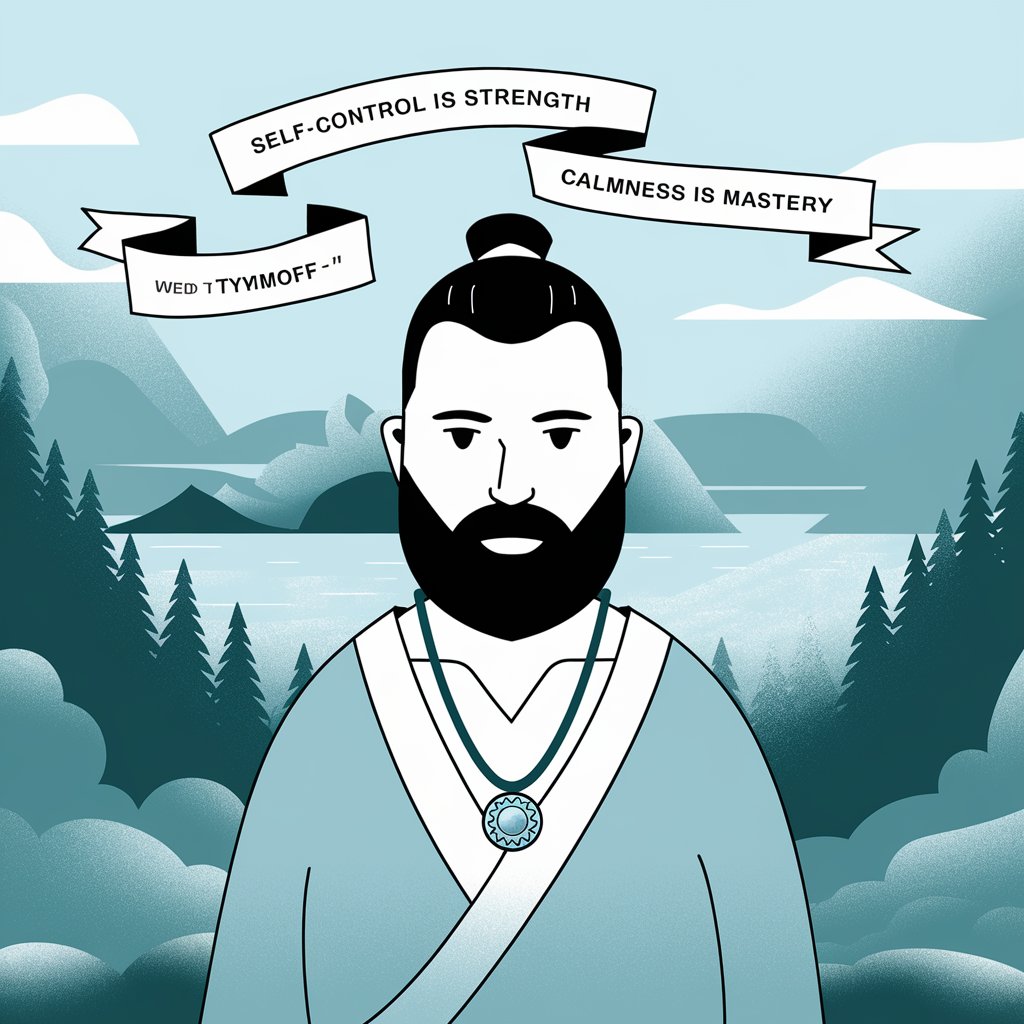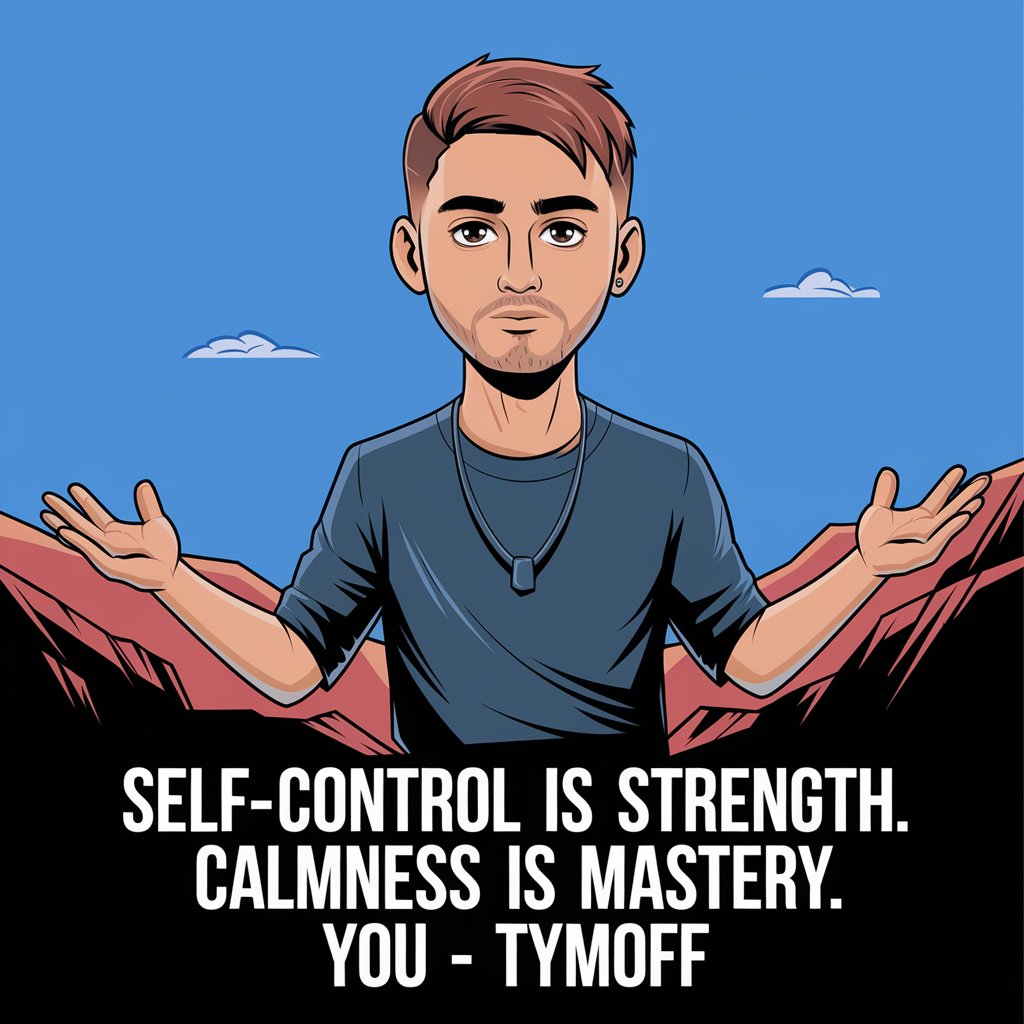What Does It Mean to Master Self-Control?
Self-control is not just about resisting temptations or suppressing emotions; it’s a profound strength that shapes your character. This concept, encapsulated in the phrase “Self-Control is Strength. Calmness is Mastery You – Tymoff,” highlights the transformative power of discipline and emotional balance. When you possess self-control, you can navigate life’s challenges with clarity and purpose. It becomes the foundation for making better decisions, fostering resilience, and achieving personal goals.
The idea of self-control as strength reminds us that internal discipline is far more powerful than external force. It empowers you to act thoughtfully rather than react impulsively. Whether it’s resisting the urge to retaliate in anger or staying focused amidst distractions, self-control is a skill that enhances every aspect of life.
Table of Contents
Why Is Calmness Referred to as Mastery?
Calmness is often underrated in a world that celebrates quick responses and high-energy performances. However, as Tymoff’s wisdom suggests, calmness is a form of mastery. It reflects your ability to maintain composure, especially in stressful situations. This mastery doesn’t come from suppressing emotions but from understanding and channeling them constructively.
Imagine facing a heated argument. A calm demeanor allows you to think clearly, de-escalate tension, and find a solution. On the other hand, reacting emotionally often exacerbates the situation. Calmness gives you control over the narrative, turning challenges into opportunities for growth. This mastery extends to professional, personal, and social interactions, making you a beacon of stability and confidence.
How Can You Cultivate Self-Control?
1. Mindfulness Practices
Mindfulness is a powerful tool for enhancing self-control. By staying present in the moment, you become more aware of your impulses and can choose your actions consciously. Practices like meditation, deep breathing, or journaling can help you observe your thoughts without judgment.
2. Setting Clear Goals
Clarity of purpose strengthens your ability to stay disciplined. When you know what you’re striving for, distractions lose their appeal. Break down your goals into smaller, manageable steps to maintain focus and avoid feeling overwhelmed.
3. Developing Healthy Habits
Self-control thrives on routine. By establishing consistent habits, such as regular exercise, healthy eating, and sufficient sleep, you reduce the mental energy needed to make good choices. This creates a foundation for success in other areas of life.
4. Practicing Delayed Gratification
One of the hallmarks of self-control is the ability to delay gratification. Train yourself to prioritize long-term benefits over immediate pleasure. For example, save money for a significant investment instead of spending impulsively.

The Interplay Between Strength and Mastery
The synergy between self-control and calmness is where true personal transformation lies. While self-control provides the inner strength to resist external pressures, calmness ensures that this strength is applied wisely. Together, they create a balanced individual who can navigate life with grace and effectiveness.
This interplay also fosters better relationships. People are naturally drawn to those who exude calmness and demonstrate control over their emotions. Whether in leadership, friendship, or family dynamics, this combination makes you a trusted and respected figure.
Practical Steps to Embrace Tymoff’s Philosophy
Recognize Your Triggers
Understanding what challenges your self-control or disturbs your calmness is the first step. Whether it’s a specific person, environment, or situation, identifying these triggers helps you prepare and respond better.
Pause Before Reacting
When faced with a stressful situation, take a moment to pause. This brief interlude allows you to gather your thoughts and approach the issue with a calm mindset. It’s a simple yet powerful practice to master your reactions.
Learn from Mistakes
Building self-control and calmness is a journey. Instead of being hard on yourself for slip-ups, treat them as learning opportunities. Reflect on what went wrong and how you can improve.
Surround Yourself with Positive Influences
Your environment plays a significant role in shaping your behavior. Surround yourself with people and influences that encourage calmness and discipline. This supportive network will reinforce your efforts.
Benefits of Living by This Principle
Improved Mental Health
Self-control reduces stress by preventing impulsive decisions that lead to regret. Calmness further alleviates anxiety, promoting a sense of inner peace.
Stronger Relationships
People who practice calmness and self-control are better communicators. They listen actively, empathize with others, and handle conflicts maturely, fostering deeper connections.
Enhanced Productivity
Discipline allows you to focus on your priorities without being sidetracked. Calmness ensures that you handle challenges at work without burning out, leading to sustained productivity.
Greater Resilience
Life is unpredictable, but with self-control and calmness, you become resilient. These qualities help you adapt to changes, face setbacks, and keep moving forward.

Why Does Tymoff’s Wisdom Resonate Today?
In today’s fast-paced world, the wisdom of “Self-Control is Strength. Calmness is Mastery You – Tymoff” is more relevant than ever. With constant distractions, emotional triggers, and societal pressures, mastering these traits offers a significant edge. It’s a timeless reminder that true power comes from within.
By embracing this philosophy, you not only improve your personal life but also inspire those around you. It’s a journey of self-discovery that leads to a more fulfilling, balanced, and purposeful existence.
Also read: It Is Not Wisdom But Authority That Makes a Law. T – Tymoff
Conclusion
Living by the principle “Self-Control is Strength. Calmness is Mastery You – Tymoff” transforms your life. It equips you with the tools to handle challenges with grace, build meaningful relationships, and achieve your goals. This philosophy is not just about managing emotions; it’s about unlocking your full potential. Embrace it, and you’ll find strength, peace, and mastery in every aspect of your life.













